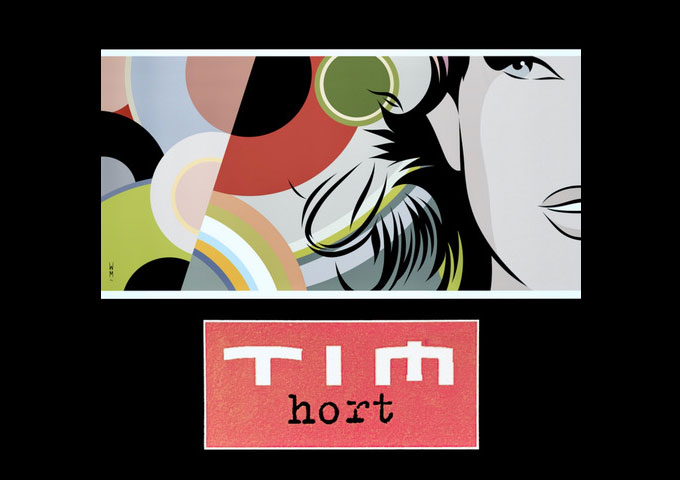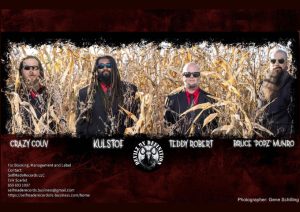Tim Hort, the visionary architect behind The Radio Hour, has steadily risen to prominence as one of today’s most compelling musical storytellers. Anchored in the rich cultural tapestry of Chicago, Hort’s work transcends the limitations of genre and geography, offering a sonic experience that is both deeply personal and universally resonant. His latest creation, “Tim Hort (2),” is more than just an album—it’s a vivid exploration of his artistic evolution, a journey that invites listeners to engage with the raw, unfiltered essence of his musical soul.
Hort’s mastery over his craft is evident in every note, every lyric, and every nuance of The Radio Hour’s sound. A polymath in the truest sense, Hort’s expertise spans vocal performance, guitar mastery, and the intricate art of recording and production. This broad skill set has allowed him to shape his music with a precision and authenticity that few can match. Whether he’s layering tracks in the studio or delivering an intimate live performance, Hort’s touch is unmistakable.
Over the years, Hort has established himself not just as a musician, but as a storyteller who uses music as his medium. His collaborations with Grammy-winning artists have further enriched his sound, allowing him to draw from a wide array of influences and perspectives. These partnerships have expanded his sonic palette, enabling him to explore new musical territories while deepening the emotional impact of his work.
The Radio Hour is the embodiment of Hort’s artistic vision, a project that has evolved in tandem with his own growth as a musician. Each album released under this moniker represents a chapter in his ongoing narrative, reflecting the various stages of his life and career. “Tim Hort (2)” is the latest installment in this unfolding story, and it’s a chapter that promises to leave a lasting impression.
Following the success of his debut album, “Tim Hort,” which delved into the darker corners of alt-Americana, shoegaze rock, and psychedelia, Hort returns with a fresh perspective. While his previous work invited listeners into a world of introspection, “Tim Hort (2)” shifts gears, offering a collection of tracks that are more immediate, vibrant, and accessible. This album is not just a continuation of Hort’s journey; it’s a bold step forward, showcasing his ability to adapt and grow while staying true to his core identity.

“Tim Hort (2)” opens with the jangling guitars and rolling basslines of “Heartbreaks and Slamming Doors,” a track that sets the tone for the album with its blend of energy and emotion. The song captures the essence of a moment—whether it’s the aftermath of a heated argument or the bittersweet feeling of letting go. Hort’s resonant vocals drive the narrative home, making it clear from the outset that this is an album that speaks directly to the listener’s heart.
As the album progresses, it becomes clear that Hort is a master of contrasts. “Jan of Arc” is a gritty, guitar-driven anthem that channels the rebellious spirit of rock and roll, while “Friday Night” offers a more laid-back, yet equally compelling and vibrant, sonic experience with its echoing chug and hypnotic rhythm. These tracks exemplify Hort’s ability to navigate different musical landscapes with ease, creating a diverse yet cohesive album that keeps listeners engaged from start to finish.
“Mainstreaming” marks a turning point in the album, with its slow-burning groove and introspective lyrics. It’s a track that invites listeners to pause and reflect, offering a deeper emotional resonance that contrasts with the more upbeat moments of the album. The distinctive drumbeat and ringing guitars of “Miserable Coping” continue this introspective journey, delving into the complexities of human emotion with a raw honesty that is both disarming and comforting.
One of the standout tracks on the album is “Granduncle,” a piano-driven ballad that showcases Hort’s talent as a storyteller. The song’s stripped-down arrangement allows Hort’s vocals and lyrics to take center stage, creating a powerful and intimate moment that lingers long after the final note has faded. This is followed by “When I’m Sick and Need You,” an explosion of upbeat guitar grit and rhythmic drive that reignites the album’s energy, reminding listeners of Hort’s ability to balance intensity with introspection.
“Not Ready” offers a mid-tempo jangle that bridges the gap between the album’s more energetic and reflective moments. It’s a track that captures the uncertainty and anticipation of a moment in time, with Hort’s vocals conveying a sense of vulnerability that is both relatable and deeply moving. “Rollercoaster” stands out as a unique moment in the album, with its minimal electric guitar strum and rare percussive interludes. The song’s simplicity allows Hort’s narrative and vocals to shine, creating a space where the listener can truly connect with the emotions being expressed.
The album closes with “Sing,” a track that relies on a rich atmospheric backdrop of ringing guitars and haunting keys to support Hort’s storytelling vocals. It’s a fitting finale to an album that has taken listeners on a journey through a wide range of emotions and sonic landscapes. “Sing” encapsulates the essence of “Tim Hort (2)”—it’s a song that resonates with the listener on a deep, emotional level, leaving a lasting impression long after the album has ended.
“Tim Hort (2)” is more than just a collection of songs; it’s a carefully crafted narrative that showcases Hort’s ongoing evolution as an artist. Each track offers something unique, yet together they form a cohesive whole that reflects the high standards of quality and creativity that have defined Hort’s work thus far. The album is a testament to Hort’s versatility and his ability to connect with listeners on a profound level, making it a must-listen for fans of The Radio Hour and newcomers alike.
“Tim Hort (2)” is a bold and exciting chapter in a story that is still unfolding, and there’s no telling where Hort will take his music next. What is certain, however, is that whatever comes next will be worth the wait. For now, listeners can immerse themselves in the rich, dynamic world of “Tim Hort (2),” an album that not only meets but exceeds the high expectations set by Hort’s previous work.
In an industry that often favors fickle trends over lasting substance, Tim Hort stands out as an artist who is committed to his craft and his vision. With “Tim Hort (2),” he has created an album that is both timeless and timely, a reflection of his journey and a promise of what’s yet to come. The Radio Hour continues to be a shining example of creativity in the music world, and with Tim Hort at the helm, the future looks brighter than ever.
OFFICIAL LINKS:
https://timhort.com
https://www.facebook.com/theradiohour











More Stories
Mandu Soul’s “Friends” Is a Soulful Reflection on Love, Loss, and the Spaces Between
Ike Breeze Plants His Flag with “Tampa Bay” ft. Hollywood & Snoop Dogg
Dusty Edinger Finds Common Ground on “Just Like Me”: A Pop-Rock Reflection Rooted in Timeless Songcraft